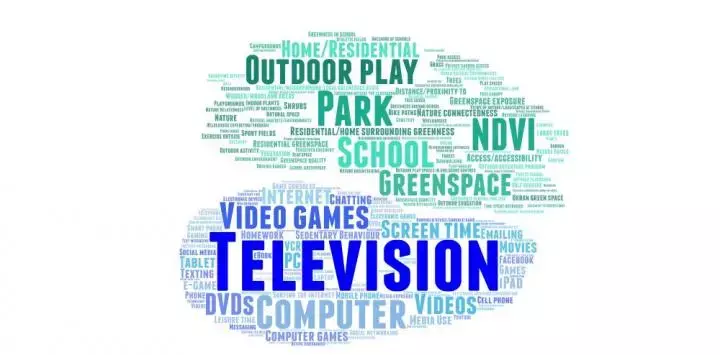- Home
- Medical news & Guidelines
- Anesthesiology
- Cardiology and CTVS
- Critical Care
- Dentistry
- Dermatology
- Diabetes and Endocrinology
- ENT
- Gastroenterology
- Medicine
- Nephrology
- Neurology
- Obstretics-Gynaecology
- Oncology
- Ophthalmology
- Orthopaedics
- Pediatrics-Neonatology
- Psychiatry
- Pulmonology
- Radiology
- Surgery
- Urology
- Laboratory Medicine
- Diet
- Nursing
- Paramedical
- Physiotherapy
- Health news
- Fact Check
- Bone Health Fact Check
- Brain Health Fact Check
- Cancer Related Fact Check
- Child Care Fact Check
- Dental and oral health fact check
- Diabetes and metabolic health fact check
- Diet and Nutrition Fact Check
- Eye and ENT Care Fact Check
- Fitness fact check
- Gut health fact check
- Heart health fact check
- Kidney health fact check
- Medical education fact check
- Men's health fact check
- Respiratory fact check
- Skin and hair care fact check
- Vaccine and Immunization fact check
- Women's health fact check
- AYUSH
- State News
- Andaman and Nicobar Islands
- Andhra Pradesh
- Arunachal Pradesh
- Assam
- Bihar
- Chandigarh
- Chattisgarh
- Dadra and Nagar Haveli
- Daman and Diu
- Delhi
- Goa
- Gujarat
- Haryana
- Himachal Pradesh
- Jammu & Kashmir
- Jharkhand
- Karnataka
- Kerala
- Ladakh
- Lakshadweep
- Madhya Pradesh
- Maharashtra
- Manipur
- Meghalaya
- Mizoram
- Nagaland
- Odisha
- Puducherry
- Punjab
- Rajasthan
- Sikkim
- Tamil Nadu
- Telangana
- Tripura
- Uttar Pradesh
- Uttrakhand
- West Bengal
- Medical Education
- Industry
More screen time and less green time linked to youth mental health problems

IMAGE: WORD CLOUD OF THE LANGUAGE USED TO CONCEPTUALISE AND MEASURE ST AND GT IN THE INCLUDED STUDIES (ST = 114 STUDIES; GT = 58 STUDIES; BOTH = 14 STUDIES). view more
CREDIT: OSWALD TK, ET AL (2020); PLOS ONE, CC BY 4.0
It has been observed that technological developments in recent times have increased young people's engagement with screen-based technologies , and a reduction in their contact with nature.
Dr Tassia Oswald of the University of Adelaide, and colleagues have found in a new study that less screen time and more green time are associated with better psychological outcomes among children and adolescents.
The study has been published in the journal PLOS ONE.
The prevalence of mental illness among children and adolescents is increasing globally. Technological developments in recent decades have increased young people's engagement with screen-based technologies (screen time), and a reduction in young people's contact with nature (green time) has been observed concurrently. This combination of high screen time and low green time may affect mental health and well-being. But research investigating the psychological impacts of screen time or green time typically considers each factor in isolation and fails to delineate the reciprocal effects of high technology use and low contact with nature on mental health and cognitive outcomes. To address this question, Oswald and colleagues analyzed the findings of 186 studies to collate evidence assessing associations between screen time, green time, and psychological outcomes (including mental health, cognitive functioning, and academic achievement) for children and adolescents.
In general, high levels of screen time appeared to be associated with unfavorable psychological outcomes, while green time appeared to be associated with favorable psychological outcomes. Young people from low socioeconomic backgrounds were underrepresented in the literature overall and may be disproportionately affected by high screen time and low green time, making this a priority group for future research. However, additional longitudinal studies and RCTs are needed to determine whether decreasing screen time and increasing green time would improve psychological outcomes. According to the authors, preliminary evidence suggests that green time could potentially buffer the consequences of high screen time, meaning nature may be an under-utilized public health resource to promote youth psychological well-being in a high-tech era. Investment in more rigorous research is needed to explore this.
Oswald adds: "This systematic scoping review highlights that nature may currently be an under-utilised public health resource, which could potentially function as an upstream preventative and psychological well-being promotion intervention for children and adolescents in a high-tech era. However, robust evidence is needed to guide policies and recommendations around appropriate screen time and green time at critical life stages, to ultimately ensure optimal psychological well-being for young people."
Dr Kamal Kant Kohli-MBBS, DTCD- a chest specialist with more than 30 years of practice and a flair for writing clinical articles, Dr Kamal Kant Kohli joined Medical Dialogues as a Chief Editor of Medical News. Besides writing articles, as an editor, he proofreads and verifies all the medical content published on Medical Dialogues including those coming from journals, studies,medical conferences,guidelines etc. Email: drkohli@medicaldialogues.in. Contact no. 011-43720751


